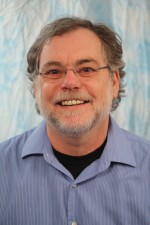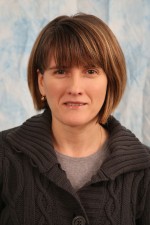
My research interests are in artificial intelligence, primarily in the areas of constraint-based search and optimization, automated planning and scheduling, configurable and adaptive problem solving systems, multi-agent and multi-robot coordination, mixed-initiative decision-making, and naturally inspired search procedures. One integrating focus has been the development of core technologies for coordination and control of large-scale, multi-actor systems, and their application to domains spanning transportation, manufacturing, logistics, mission planning, and energy systems.
Practical Planning and Scheduling
I am interested broadly in the theory and practice of next-generation technologies for practical planning and scheduling. One thread of current research focuses on algorithms for constructing robust plans and schedules, which capture sets of possible execution futures and anticipate executional uncertainty. Another topic of current research is over-subscribed planning and scheduling, which involves problems where available resources preclude accomplishment off all goals and solutions must therefore maximize expected gain. Other general interests here include constraint-based planning and scheduling, integrated action selection and resource allocation, visualization and mixed-initiative manipulation of plans/schedules, reactive plan/schedule repair, planning and scheduling under complex (and potentially conflicting) constraints, and planning/scheduling search-space analysis.
Coordinating Distributed Planning and Scheduling Agents
Increasingly, my research has emphasized planning and scheduling problems that are inherently distributed and require mechanisms for coordinated decision-making by multiple agents. One focus has been on distributed execution and management of joint schedules in an uncertain execution environment, where each agent has responsibility for carrying out some portion of an overall operation, the actions of different agents are inter-dependent, but no one agent has a complete global view. Other recent work has been investigating algorithms for planning and coordinating the movements of mobile robot teams engaged in material movement and manufacturing assembly tasks. My broader research interests here include self-scheduling systems, distributed constraint optimization, and negotiation-based approaches to distributed planning and scheduling.
Adaptive and Configurable Problem Solvers
Another general research interest is the design of configurable and adaptive systems. One area of current research focuses on mechanisms for exploiting the use of multiple heuristics to efficiently solve planning, scheduling and optimization problems. Topics here include online learning strategies for allocating trials to heuristics within iterative sampling search procedures, algorithm portfolio design, and other adaptive search procedures. A second area of current research focuses on planning and scheduling assistants that learn user preferences over time. At another level, I am also interested in the development of reconfigurable planning and scheduling system architectures, which promote rapid development of high performance application systems.
Smart Infrastructure for Urban Mobility
One major application area of my research in recent years has been smart infrastructure for urban road networks. New techniques for real-time, adaptive traffic signal control has been our central initial focus – we have developed a decentralized traffic control system called surtrac (Scalable URban TRAffic Control) that has shown substantial improvement in traffic flow efficiency in the field and currently controls a network of 50 intersections in the East End area of Pittsburgh. One direction of current research seeks to generalize current online planning techniques to better accommodate the multi-modal traffic flows (pedestrians, buses, bicyclists, etc.) that are characteristic of urban environments. A second direction of current research anticipates the emergence of connected vehicle technology (and in the longer term self-driving vehicles), and is investigating opportunities for enhanced mobility through vehicle-to-infrastructure communication and incorporation of vehicle-provided information into real-time signal control decisions.
Evolutionary Computation
Finally, I interested broadly in the design and use of genetic algorithms (GAs) and other related evolutionary computation models, as well as other biologically inspired computational mechanisms. Some specific research areas of interest include: the design of GA-based architectures for learning rule-based decision models from payoff-based feedback about past performance; the design of (heuristic) search operators for non-standard GA problem representations; inter-operability of population-based search with other (possibly domain specific) optimization algorithms and heuristics; and dynamic adaptive control of complex multi-agent systems.
Additional Interests
I am a participating faculty member of (1) Traffic21, a transportation research institute at Carnegie Mellon University focused on information and communications based technology solutions to transportation problems in the Pittsburgh region, (2) Metro21, a broader research initiative at Carnegie Mellon aimed at smart cities, and (3) the TSET University Transportation Center. In addition to my work in smart infrastructure for urban mobility (mentioned above), I have also been collaborating with the City of Pittsburgh and Allegheny County through these affiliations in the development of systems for dynamic paratransit vehicle scheduling and for optimized snowplow routing.
Research Topics
- Intelligent Transportation Systems
- AI Reasoning for Multi-Robot Systems
- Multi-Robot Planning & Coordination
- Machine Learning Embedded in Systems
- Biologically Inspired and Evolutionary Robotics
- AI Reasoning for Robotics
- Field & Service Robotics
- Manipulation & Interfaces
- Human-Centered Robotics
- Robotics Foundations
- Multi-Robot Planning & Coordination
- Planning & Scheduling
current phd students
current affiliates
past masters students
Below is a list of this RI member's most recent, active or featured projects. To view archived projects, please visit the project archive





